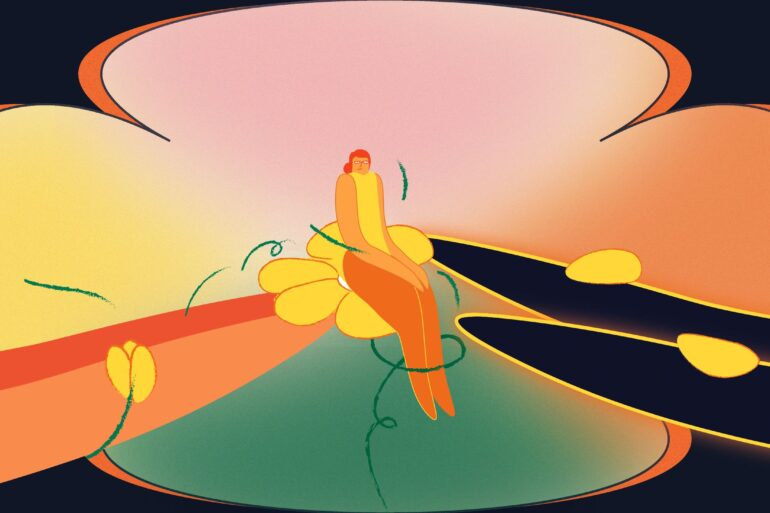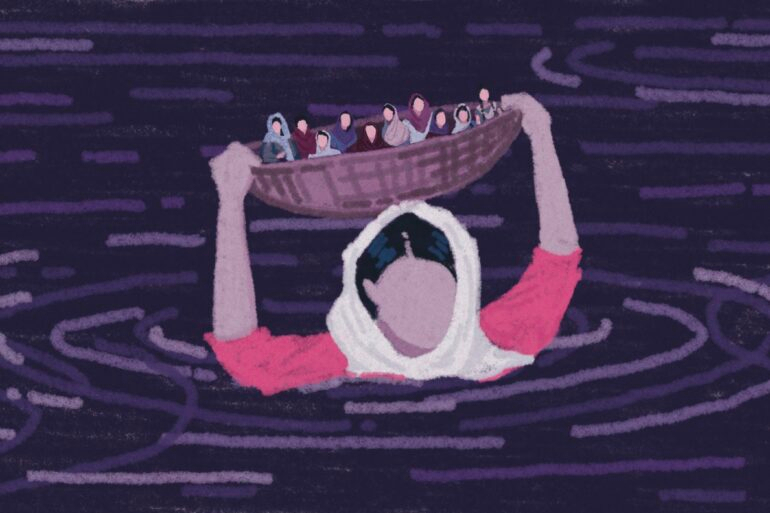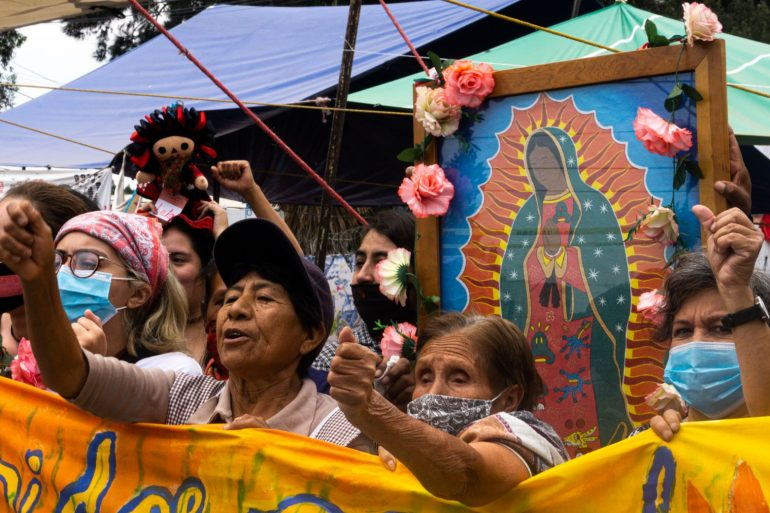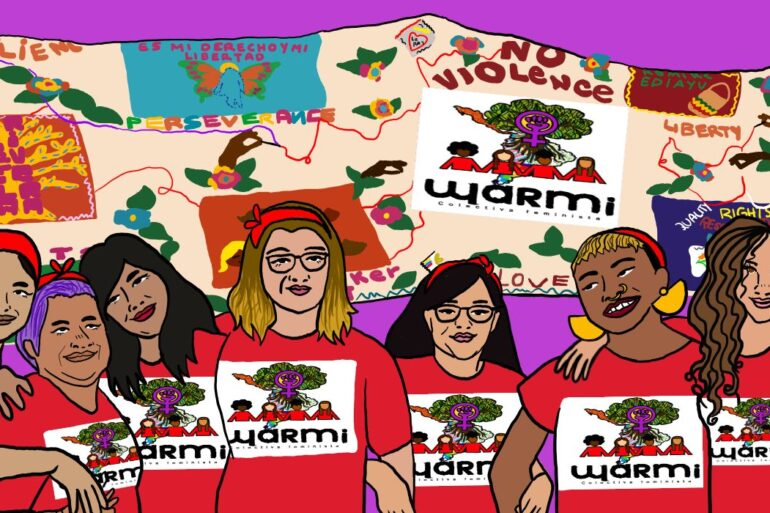What are food systems?
The food system refers to “a complex web of activities involving the production, processing, transport, and consumption” of food. When most people talk about the “food system,” however, they tend to be talking about the global industrial food chain. The chain is a product of capitalism — a simple, linear sequence that runs from inputs (seeds, fertilizers, herbicides, pesticides), to production, to the food that we see in the grocery store. Most people in the Global North get their food from this industrial system.
But the majority of the world’s population (around 70%) are fed through systems that exist outside the chain. These localised systems feed communities around the world in very different ways. Within these systems are diverse networks of small-scale local producers, many of whom are subsistence farmers or produce for their surrounding communities, relying also on practices such as hunting and gathering, pastoralism, or fishing for their food.
These diverse, complex, and dynamic foodways exist largely outside global capitalism, so they often get overlooked or left out of food system narratives.
The industrial food chain separates food production from living systems in order to consolidate profits and control in the hands of transnational corporations. But localised systems tend to be deeply embedded in cultures and ecologies, contributing to increased biodiversity. They allocate more of production to feeding people (as opposed to other uses such as biofuels or animal feed), and represent a wealth of agricultural knowledge that has been accumulated over generations. However, they are currently at risk of extinction as the industrial food chain imposes itself around the world.
Why is this a global issue?
Language informs both how we look at our problems and solutions. At the global scale, governments and institutions tend to talk about the need to replace “our current food system” with a new, more sustainable one. But while it’s important to understand the industrial food chain, the idea that the solution is a different single system is a form of erasure of the majority of communities around the world.
The dominance of a single system is the problem in and of itself. The solution is a return to diversification and relocalisation, taking into account communities’ own contexts. Considering that people get their food in a multitude of different ways, we need equally diverse solutions that are appropriate for given cultures. But this often doesn’t happen because communities’ agency is not recognized and valued. For example, there is an effort to replace communities’ traditional seed systems, which are highly diverse, with a uniform set of hybrid seeds sold by corporations. Legislation like UPOV dictates that seeds should meet “uniformity” and “quality” requirements that native seeds can never meet. In this way, the diversity of multiple seed systems is replaced by one dominant one. This is a trend that is being resisted worldwide, but faces many challenges given the degree of corporate control over the industrialized food chain.
For example, communities in Zambia are having to organise themselves to protect their right to save and exchange their own seeds as corporations lobby the government to increase the legislation around which seeds can be cultivated in the country. For some of their stories, check out this video series.
Who are some of the key leaders in this movement?
Much of the leadership for recognising and working to reclaim diverse food systems operates on a local level, where individual farming communities come together to protect the way they nourish themselves from encroachment by industrialised, uniform agricultural practices. However, organisations like La Vía Campesina have made strides in representing these diverse movements under the same umbrella and getting legislation passed at the international level to protect the rights of small-scale producers. Other organisations like the Alliance for Food Sovereignty in Africa (AFSA) are umbrella organisations bringing together actors from across Africa pushing for greater representation for food sovereignty amongst policymakers and other civil society organisations.
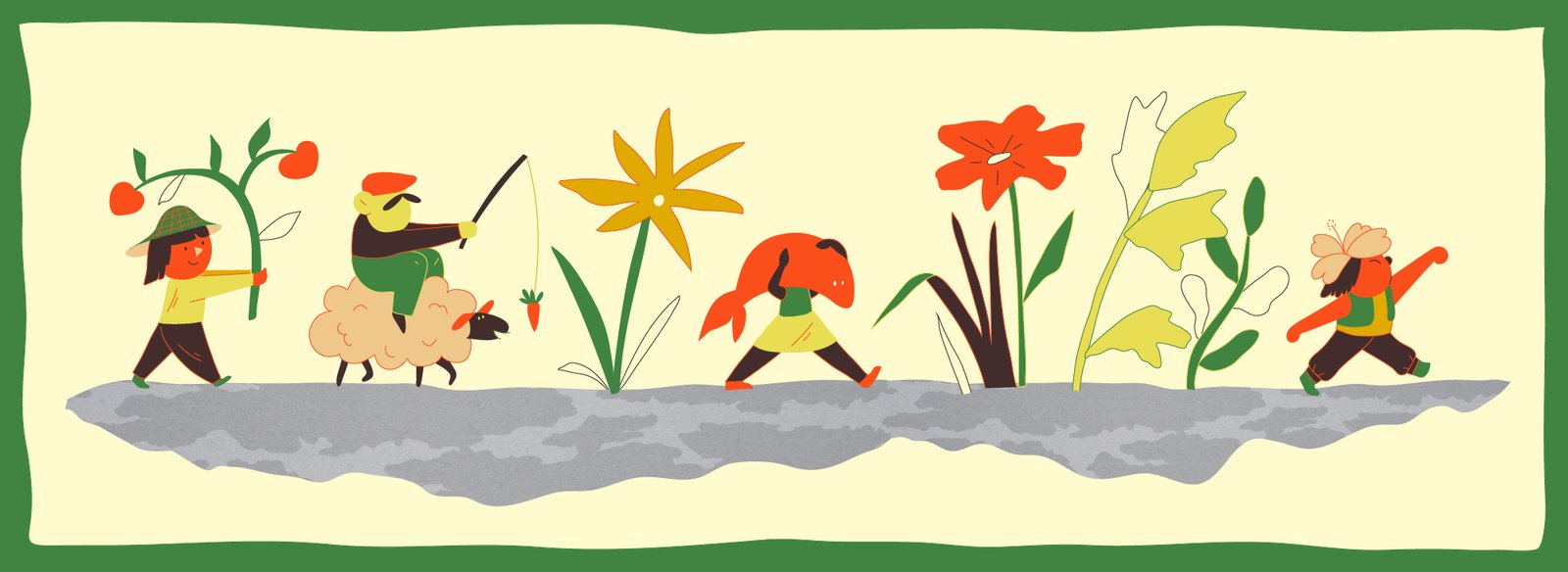
Where is the movement heading?
Much of the future of this movement involves re-localisation. Alternative food movements are growing around the world, both in cities and in rural areas. Self-organised groups are creating and sharing new structures of agricultural organisation that exist largely outside of the dominant, industrialised food system. An example of an alternative movement like this is Thamturakit, in Thailand, which you can read about here.
What can you do?
The first step is to consider the food systems that you are a part of and begin to ask questions about them. How much of the food you consume comes from the industrialised food system? What about a more localised food system? Who is present in that local food system, and who has the power to define and shape that system?
As we move towards a more just and dignified food future, we must begin to see what the institutions heavily invested in the industrial food chain don’t want us to see — that the chain is the minority when it comes to feeding the world, and that our hope lies in giving a diversity of food systems the chance to grow again.
For more reading, ETC Group put together a report called “Who Will Feed Us?” that explores different food systems and their contributions to food security, as well as some of the hidden costs of the industrial food chain that we often overlook. It’s a great place to dive deeper.







